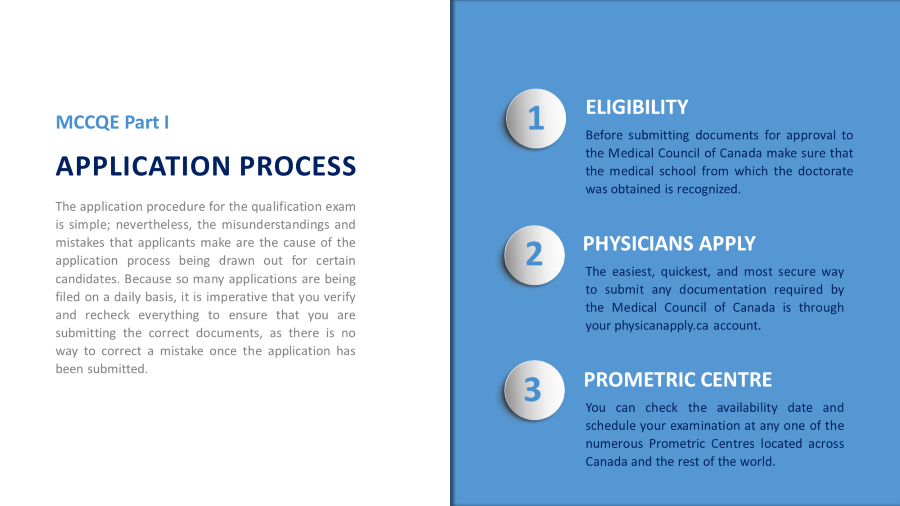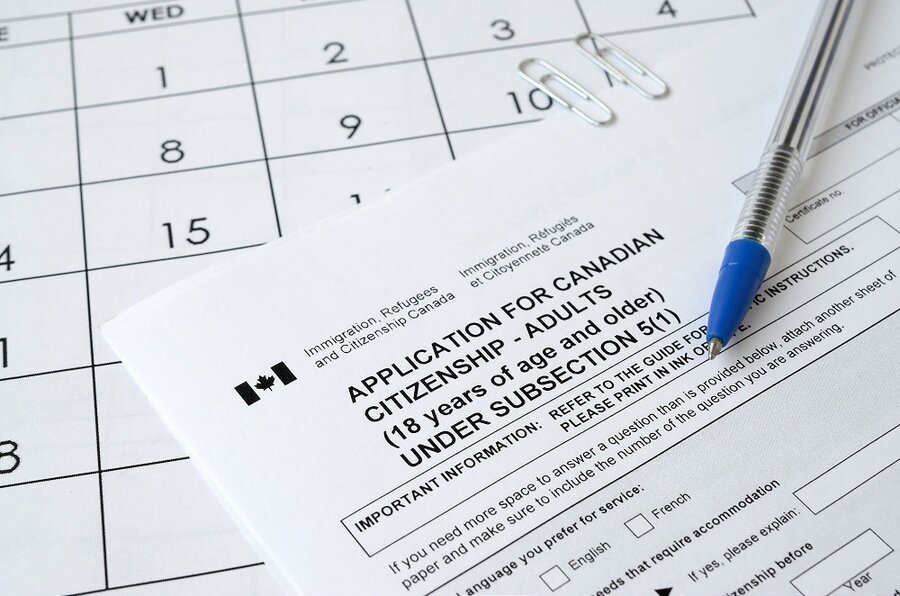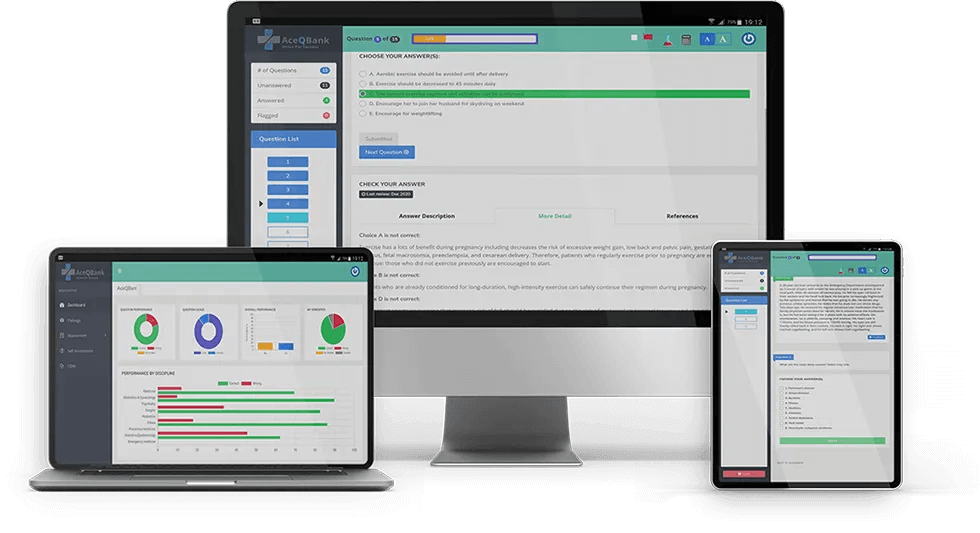Canada New IMG Destination

Every year, medical graduates from all over the world face the same dilemma: what to do after graduation?
For some, the answer is clear. They return to their home countries and begin practicing medicine. However, for others, the decision is not so simple. When deciding where to practice medicine, there are numerous aspects to consider.
Canada has welcomed and continues to welcome many immigrants from all corners of the world. Immigration to Canada has a long history. Millions of people have settled in Canada and continue to do so.
With a thriving economy and a high standard of living, Canada is an attractive option for many international medical graduates (IMG). Also, Canada’s healthcare system is the best in the world, which makes it a great choice for physicians who want a high-quality system.
The recent popularity of Canada among international medical graduates has seen more physicians continuing their medical education in the country.
Following recent changes to the qualification process, there has been a considerable surge in the number of IMG interested in taking the Canadian qualification exam, the Medical Council of Canada Qualifying Examination (MCCQE) Part I.
In this blog, we will explain the Canadian qualification exam, its changes and requirements, and the socioeconomic status of a physician in Canadian society. We hope it will inform and guide you on your decision to pursue the prestigious honour of becoming a Canadian physician.
Who Is Considered International Medical Graduate In Canada?
Doctors who have earned their medical degrees from universities outside of Canada are referred to as international medical graduates (IMG). IMG typically possess medical degrees in their respective countries.
IMGs are not always citizens of another country; Canadian nationals will also leave the country to study in a medical school outside of Canada and obtain their medical certifications in a different country. This means that Canadian who graduated from a medical school outside Canada are considered IMGs.
Specialist physicians (Anesthesiologist, Internist, Cardiologist, neurosurgeon, etc.) with clinical experience outside of Canada also fall under this category. However, in Canada, the field of specialties and years of clinical experience are highly valued assets. This has two key advantages: more chance of matching and less competition.
What Are The Qualification Exams For IMG?
As an international medical graduate, you may wonder which qualifications you need to fulfil in order to participate in residency match programs in Canada. While the specific requirements may vary depending on the province in which you wish to practice, generally, you will need to pass the MCCQE Part I and the National Assessment Collaboration (NAC) exams to be eligible for residency programs.
The MCCQE1 exam is a computer-based standardized national exam that all medical students must pass in order to be eligible for licensure in Canada. Questions are designed from the Canadian Medical Education Directives for Specialists (CanMEDS) role and based on the Medical Council of Canada objective. There are two sections to the exam day. You will have 4 hours in the morning session to answer 210 Multiple-Choice Questions. The Clinical Decision-Making (CDM) component takes 3.5 hours in the afternoon session and consists of 38 clinical cases with short-menu and short-answer write-in questions.
The NAC examination is an oral exam that assesses a medical graduate’s knowledge of the core competencies required for the practice of medicine in Canada. It was initially introduced in Canada with the primary purpose of assessing the competence of international medical graduates. The NAC exam is made up of a series of stations, each of which evaluates a different aspect of a candidate’s medical knowledge and clinical skills.
At each station, a brief written statement defines the candidate’s tasks, such as taking a history, completing a physical examination, and other similar activities. This statement also introduces a clinical problem.
No, you will not actually meet the patient in the NAC exam. There will be a standardized patient and a physician examiner present at each of the stations. You can take the NAC examination at any testing facility in Canada only.
After passing two qualification exams, you need to submit a request to the Medical Council of Canada (MCC) for the Licentiate of the Medical Council of Canada (LMCC) through your physiciansapply.ca account. The MCC will issue the LMCC to candidates who have met the requirements of the LMCC. The LMCC is the first step towards becoming a certified specialist in Canada.
The MCCQE1 Exam Changes
The MCCQE1 examination is constantly being updated, and the MCC website is kept current with the latest changes on a regular basis. However, the scoring system has recently been updated, and in order to pass the MCCQE1 exam, candidates must now get a score of at least 226 on the newly implemented scale, which ranges from 100 to 400.
Changes In The Qualification Steps
The MCCQE and MCCQE Part II have been discontinued, and there is no obligation in order of examination. You are not obligated to take exams in any specific order, and you can choose which exam to take first. The MCCQE1 exam and National Assessment Collaboration (NAC) are two qualification exams required before participating in a national residency match.
The recent changes in the qualifications process make Canada the favourite destination for experienced physicians who would like to call Canada home for the rest of their life. Many foreign doctors are flocking to Canada because of the longer-term considerations, including a higher quality of life, more time for research, and an increased chance of practicing medicine in their chosen field.
Eligibility Requirements For The MCCQE1
Candidates applying for a CaRMS match must have graduated from either a Liaison Committee on Medical Education (LCME) or Committee on Accreditation of Canadian Medical Schools (CACMS) accredited medical school (medical schools that are eligible), or a school that is listed on the World Directory of Medical Schools, which consists of a list of recognized international medical schools or FAIMERs International Medical Education Directory. Furthermore, IMGs must have successfully completed the MCCQE1 and NAC exam.
Now, fewer international medical schools are on the World Directory of Medical Schools list. To check your medical school eligibility, you need the name of medical schools outside the United States and Canada, the country, the city, and not the medical school graduation year.
The Application Process For IMGs In Canada
The application process for IMGs in Canada is not a simple one. There are many steps that need to be completed before you can sit for any qualification exams.
The first step is to check your eligibility. You need to check the eligibility of your medical school to verify that MCC recognizes your school of medicine.
The next step after checking out eligibility is opening an account at physiciansapply.ca – you will be required to provide an official identity and other required documents- to register for the qualification exams.
Once your account is verified, there are two more steps that you need to take. The first one is to apply for the MCCQE1 exam and then wait for the result of your exam. Once your exam is complete, you will be able to apply to take the next exam, Nac Osce.
Read more on the MCCQE1 eligibility and application process
Why do International Medical Graduates Choose Canada?
Canada has been a popular destination for IMG for many reasons. The country is known for its progressive values and welcoming environment. Canada was the first nation to introduce a healthcare system that is accessible to all citizens. This implies that even if you are a permanent Canadian resident, you can still receive first-rate medical care without having to pay for it.
Additionally, Canada is well-known for having a culture that is considered among the most progressive in the world. The government allows immigrants to work and study without restrictions, making it easy for international students to find jobs and make friends.
Physicians are listed on Citizenship and Immigration Canada’s (CIC) list of “careers in demand occupations” for the Federal Skilled Worker Program, which will be discussed in detail later on. When completing their residency requirements, IMGs are eligible to get a work visa and will be able to submit an application for permanent residency after that period of time has passed.
For international students with family in Canada, the Canadian Experience Class (CEC) is a way to get fast-tracked into Canada by getting permanent residency if they have siblings or parents already living there. The CEC is an immigration program for skilled workers with Canadian work experience (at least one year) who want to become permanent residents.
On the other hand, The COVID-19 outbreak brought to light the important role that immigrants have in Canada’s economy. Immigration is more important to the economy than it has ever been since the working population is becoming older, while the number of job openings is expected to be 80 percent greater in late 2021 than they were before the epidemic.
A recent study by the Mowat Centre, entitled “The Challenges and Opportunities of Canada’s Aging Population,” found that “while Canada is aging, immigrant populations are younger than the general population.” Immigrants are not only a potential solution to labour shortages in a number of industries but also enrich Canada with their diversity. Immigrants accounted for four-fifths of the labour force’s expansion between 2016 and 2021.
What Are The Pathways To Residency For International Medical Graduates?
IMGs must go through the same tough application process as Canadian medical students. The only difference is that IMGs have to take the NAC exam. Depending on the residency program they apply to, IMGs may also have to provide proof of language proficiency.
There are two pathways to medical residency for international medical graduates. IMGs can apply through the Canadian Resident Matching Service (CaRMS), which is a centralized application for residency positions in all provinces and territories of Canada or Practice-Ready Assessment programs that are offered by certain provinces in Canada.
A Practice-Ready Assessment program is designed for trained physicians who have pursued postgraduate clinical medical training abroad and are looking to get a provisional licence so they can begin independent practice.
Recent changes in qualification steps make it easier for internationally educated physicians to go through the Practice-Ready Assessment program to become certified and licensed to practice medicine in a Canadian province every year. The program has enabled internationally educated physicians to practice in local communities across the province.
On the other hand, the application process for the Practice-Ready Assessment program can be complicated, and many things need to be considered before applying. Thus, it is recommended that IMGs who would like to practice in a province have to check with the medical regulatory authority of the province where they wish to practice medicine in Canada to obtain specific information on programs or special requirements for application, as requirements vary among the programs.
Nevertheless, many foreign physicians with years of clinical experience apply for the Practice-Ready Assessment program and participate in CarMS Match to increase their chances of being matched with a residency program.
The last changes in qualification steps have increased grown the number of IMGs considerably for a relatively fixed number of residency positions in Canada. Preparation is key, so use practice residency interviews, read up on residency requirements before applying, and make sure you do your homework on individual programs because many residency programs have tightened their qualifying standards.
Medical Licenses In Canada
There are two categories of medical licenses in Canada, full and provisional. After completing their medical training in Canada, both foreign medical graduates and Canadian medical graduates must pass the certification exams administered by the medical regulatory (colleges of physicians and surgeons of Canada) before practicing medicine and getting a license to independent practice.
The license is different from the LMCC, which is part of the requirements of becoming a fully licensed physician for independent practice, and you can get it by submitting a request through your physiciansapply.ca account.
Basically, the provincial colleges of physicians and surgeons are the medical regulatory bodies and medical licensing authorities in the jurisdictions responsible for verifying credentials and determining a physician’s eligibility to practice in the provinces.
What is Canada’s immigration policy for healthcare professionals?
Canada has a generous immigration policy for professionals in the medical field. Canada welcomes physicians and all health care professionals to immigrate.
Canada has introduced the Federal Skilled Worker (FSW) program – an Express Entry system for processing immigration applications. Participants in the program who want to live in Canada permanently are given a ranking. The FWS program does not need candidates to have a prior Canadian employment history to be considered for the Express Entry pool, in contrast to the Canadian Experience Class (CEC).
Candidates must instead achieve a minimum point requirement that is based on variables such as work experience, language proficiency, and academic background. Candidates must obtain a minimum of 67 points to be eligible for a visa through Canada’s Federal Skilled Worker Program.
On the other hand, Canada has introduced Practice-Ready Assessment programs to facilitate the matching process of experienced physicians who are interested in working in Canada with the residency program in provinces.
What Are The Benefits Of Becoming A Doctor In Canada?
As a doctor in Canada, one is offered some of the best benefits. Working as a doctor in Canada has its perks—one can expect to find a desirable work-life balance and the ability to take time off when needed. These factors make it possible for doctors to have more control over their personal lives and to give back to society.
In addition, work-life balance is made possible because doctors can easily switch shifts. However, this has changed post-pandemic, and the shortage of doctors has weighed on this possibility. In this way, even if all of the extra work ends up going to a few doctors, the situation is still far better than it was at the beginning of the crisis.
In Canada, doctors are permitted a wide range of vacation days, and the number of days off that they can take varies depending on their employment contract. For example, a doctor is entitled to 3 weeks of vacation time each year in Ontario. Doctors typically schedule their vacations so that they have one week off during the month and two weeks off at the end of the year.
Finally, doctors can easily move to where they want to practice. This means that doctors can live in a more rural area with less pollution and easily move to where they want to practice.
The Typical Salary For A Doctor In Canada
The salary range of a doctor in Canada may vary from $278,000 for psychiatrists to over $769,000 for ophthalmologists, depending on the number of patients seen each day, the amount the doctor may charge for each patient, and the province in which they work.
The number of patients seen in a single day is the most important of the three elements discussed when it comes to figuring out how much money a doctor in Canada will make. This is true for most medical practitioners in Canada.
Read more about Canadian doctor salary
Specialties Available For IMG In Canada
Many residency positions are available across Canada in rural and urban areas. However, the highest demand is usually in remote or rural areas and outer metropolitan areas. Despite the high demand for physicians in these areas, the competition for positions is generally not as fierce as it is in inner metropolitan areas. This is because fewer physicians are looking for positions in these areas.
Particularly in rural parts of the country, Canada is grappling with a deficit of general practitioners or family doctors. In addition, psychiatric physicians, pediatricians, anesthesiologists, and emergency medicine specialists all are in great demand and are highly sought after.
Often physicians with medical specialties and years of clinical experience have a much better chance of getting accepted into residency programs than a newly graduated physician in remote or rural areas. There is even a special matching program for experienced physicians called the Practice-Ready Assessment program.
Now is an ideal time for you to pursue a career as a physician in Canada; there has never been a time more favourable than the present for you to make a move. Canada is currently facing a shortage of physicians, and they need more. The Canadian government is taking steps to make it easier than ever for qualified physicians to immigrate to Canada.
The Canadian healthcare system provides universal coverage, but it is not without its criticisms. For example, the quality of care varies from province to province, and some patients have complained about long wait times for treatment in emergency rooms and specialists. In Alberta, 18% of people don’t have a GP, and in French-speaking Quebec, it’s 26%.
IMG Friendly Provinces In Canada
IMG friendly provinces in Canada are provinces where international medical graduates have a higher chance of matching in residency programs. Some provinces in Canada, including Nova Scotia, Manitoba, Saskatchewan, and British Columbia, have reduced the amount of time that transpires between submitting the application and getting accepted in a medical residency for international medical graduates.
The 4 IMG friendly Provinces in Canada:
Nova Scotia is the Canadian province with the most acute shortage. Province is well-known for being one of the easiest provinces for IMGs to practice medicine. The Maritime province currently has two programs for IMGs. One program is the IMG Bridging Program, and another program is Dalhousie University’s Med 3 Clerkship Opportunities For IMGs Program. However, before devoting time and money to apply, it is critical to understand the requirements for each residency program of interest in order to practice medicine in Nova Scotia.
Manitoba province has a program for IMG that the University of Manitoba administers; the Medical Licensure Program For IMGs Program assists IMGs in pursuing licensure in Manitoba.
In Saskatchewan province, International Medical Graduates only need to meet certain criteria to qualify. The only eligibility requirement is your school’s FAIMER membership. Province has the Saskatchewan International Physician Practice Assessment (SIPPA).
British Columbia province has practiced under supervision rule that many IMG do not like. However, if you do not mind the supervision, then check out the provisional medical license.
The United States And Canada: IMGs Highlights
The United States and Canada are considered to be IMG-friendly. This is because they both have a large number of foreign-trained medical graduates. In addition, graduates from medical schools outside of Canada or the United States are some of the most highly educated and skilled members of society and play an important role in keeping our communities healthy.
There are numerous reasons why the United States and Canada are regarded as the main destinations for graduate medical education programs. The most obvious reason is that these countries are the most medically advanced countries in the world.
In addition, the United States and Canada also offer many other benefits that make them attractive destinations for medical students. For example, both countries have strong economies and offer a wide variety of employment opportunities for IMGs. Additionally, both countries offer a high quality of life, which is an important factor for many physicians.
The huge disadvantage of residency programs in the United States is that IMGs on the visa have to leave the country after completing residency programs. On the contrary, IMGs have easier access to permanent residence in Canada, thanks to Citizenship and Immigration Services.
IMGs must obtain the appropriate visa to participate in American residency programs. In the United States, Many institutions will sponsor the visa for international students compared to Canada. However, specific programs such as the Educational Commission for Foreign Medical Graduates (ECFMG) in the United States sponsor foreign national physicians for the J-1 visa.
IMGs are more likely to enroll in residency programs in the United States than they are in Canada due to the United States’ higher number of medical universities. On the contrary, international medical graduates in Canada often go on to become other medical professionals rather than practice in Canada, as getting into medical residency in Canada is challenging.
On the other hand, One advantage of Canada s that regardless of citizenship, an IMG who has completed only their graduate medical training must complete postgraduate training in Canada. Since postgraduate training in the United States is generally considered to be on par with Canadian training; therefore, IMG from the American Program can apply for independent licensure to practice and eventually become a permanent resident of Canada. However, U.S. citizens who graduated from medical schools abroad are less likely to use this option.
How Can I Prepare For The MCCQE1 Quickly?
Proper preparation is essential for success on the MCCQE1 exam. You should make every effort to earn the maximum possible score on the MCCQE1 exam and, importantly, pass the exam on the first attempt.
The MCCQE Part I exam is based on the MCC objectives and in accordance with CanMEDs. The most effective method of MCCQE Part I preparation is to use a question bank to properly cover the MCC objectives.
Ace Qbank is the number one question bank and the best choice for MCCQE1 exam questions that help you cover all MCC objectives with high-yield questions. Proper programming, coverage, and proper testing will guarantee good results.
Ace Qbank is the only Canada question bank designed based on the Medical Council of Canada objectives and has over 2,400 questions designed to prepare you for the first part of the exam, 140 Clinical Decision-Making (CDM) cases for the second part of the exam and two self-assessments to assess your readiness before you it for the exam.
The high-yield quality questions, many summary tables, outstanding flowcharts, detailed explanations for all question options, and top-notch clinical decision-making (CDM) distinguishes the Ace Qbank and makes it the number one question bank for the MCCQE1 exam in Canada.
The MCCQE1 exam is clinically oriented, hence the questions are difficult. You will have a better comprehension of the medical concepts and have a greater chance of succeeding with an in-depth explanation of the correct and incorrect answers, flowcharts, and summary tables that Ace Qbank offers.
Ace Qbank is a one-stop shop. The question bank has over 2400 multiple-choice questions for the first part of the exam, 140 CDM cases for the second part of the exam, and two self-assessments to assess your readiness before you it for the exam.
We invite you to sign up for the Ace Qbank demo today and see the difference our elite question bank makes!









